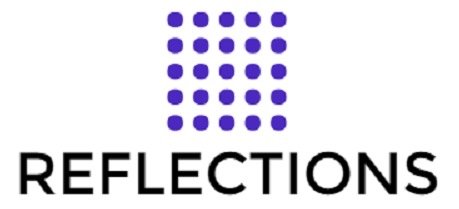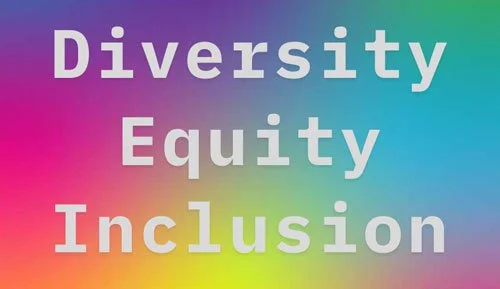Diversity, Equity and Inclusion
Diversity, Equity and Inclusion on rainbow colored background
Diversity, Equity and Inclusion
A generation of toddlers and their parents learned to celebrate letters of the alphabet. Letters such as D, E and I would be the subject of songs, games and skits on Sesame Street TV shows. Who could have anticipated a time when those useful and fun letters would be taboo? Of course, they are not always taboo. If found in the names Donald or Elon, some people would like them to be celebrated, with pledges of loyalty, and financial donations to political organizations. We are now encouraged to demonstrate our loyalty and devotion, by eliminating the use of D, E and I whenever the letters stand for Diversity, Equity and Inclusion, either together or as individual words. There’s actually a whole list of words that are now considered toxic by our President. One that bothers me the most is the attack on “empathy.” In some circles empathy is now considered a sin.
We need to stop the attack on words that reflect compassion and caring for other human beings. The world is made up of many different sorts of people and species. We need one another. All major religions of the world recognize that principle, through teachings commonly known as the Golden Rule. It can be worded in a variety of ways, but generally asks us to treat others as we would like to be treated or to not do to someone else something you would not like done to yourself.
Diversity in the natural world helps maintain the balance of nature and helps keep the world healthy for plants and animals, including humans. Diversity among humans recognizes that humanity exists in many forms and we all live better when we cooperate and help one another. Equity is simply the value of fairness, ensuring that everyone has a reasonable chance at a happy and productive life. Inclusion is a word which reminds us that just tolerating differences is not sufficient. To maximize our life together, we need to be welcoming toward those different than ourselves, not just making space but also helping them to feel part of the group, whatever it may be. In the Christian tradition, this could be considered to be loving your neighbor as yourself.
The argument has been made that taking the values of diversity, equity, inclusion and empathy to their extreme can have bad consequences. My response to that is that anything taken to an extreme can have bad consequences. These values need to be pursued in a reasonable manner, balancing other factors, such as time, money, skill and resources. The fact that no situation is ever going to be perfectly diverse, equitable or inclusive is not a reason to reject these values. The possibility that someone would be so empathetic that they would overcompensate the needs of others is not a reason to reject the value of empathy. Everything in life must be approached from a standard of reasonableness and balance.
Let’s celebrate D, E and I, as well as empathy, diversity, equity and inclusion, remembering the Golden Rule and committing ourselves to enhance our communities through our actions. Let’s be good neighbors!

